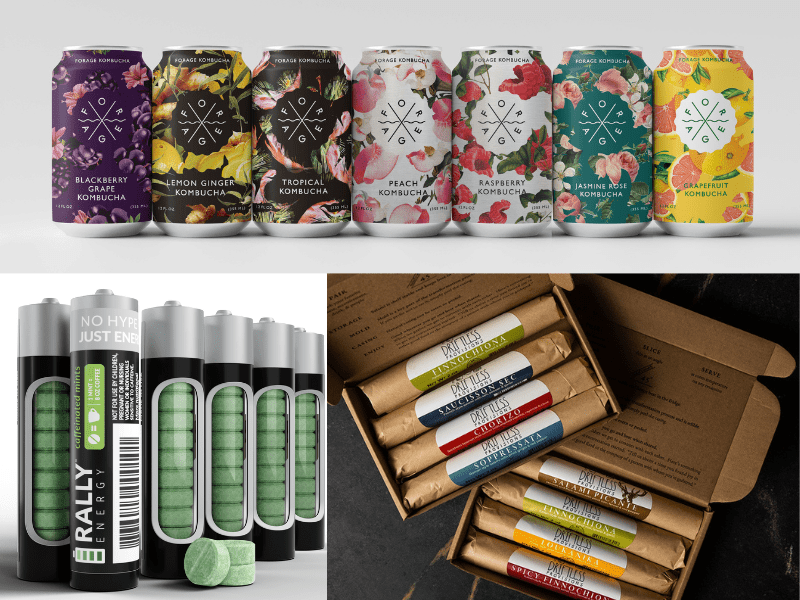Given the global pandemic, now might not seem like the best time to court investment. Well, it’s true the current economic climate isn’t ideal and “business as usual” has been thrown out the window. But for food companies that have a real shot at surviving the coronavirus crisis and the prolonged recession expected to follow, raising capital might be a smart strategy. In fact, it may the only way to keep the engine running.
This can apply to both businesses that are struggling a bit (but not on life support) and companies that are crushing it right now. Take, for example, a gourmet cheesemaker that sells mainly to local restaurants and specialty shops. Most of their accounts are closed for the time being, so cheese sales are suffering. However, if the cheesemaker saw a way to build more business by shifting strategies, a little extra cash could get them over the hump.
Or let’s say a small snack brand is experiencing the opposite impact of the coronavirus crisis: through-the-roof sales, especially via its ecommerce site. To ensure the company can keep up with the onslaught of online orders and maybe even take on a new retail account—and do everything in its power keep all those new customers post-pandemic—an influx of cash is probably necessary.
Acquiring additional capital might mean hitting up current investors, meeting (virtually) with potential new ones or pursuing any number of other avenues. Regardless, before an entrepreneur asks for funds—whether in this crazy coronavirus world or during more stable economic times—they should understand exactly how much money they need.
This might seem like something a business could ballpark. But as Tera’s most recent podcast guest explains, it should be a precise figure arrived at through an in-depth examination of a company’s current financial health, goals for growth and plan to achieve that growth. Heidi Huntington, vice president of finance at AVL Growth Partners, says that raising either too much or too little money can really hurt a rapidly scaling food business. When companies over-raise, they often give away more equity than is wise at their current stage. And when they under-raise, they are unable to execute their plans fully, forcing them to go right back out and lobby for more cash.
To figure out actual funding needs, entrepreneurs first must wrap their heads around cash flow. Start by doing a 13-week rolling cash flow forecast, then dig into when exactly money is moving in and out of the business. In the food industry, there are many delays in revenue actually converting to cash in the bank. Costs such as procuring ingredients, securing packaging, financing a big manufacturing run, distributor fees, trade spend—all of these require shelling out money long before that money is made back. Therefore, food entrepreneurs often need more funds upfront than they think they do initially.
Another reason it’s crucial for companies to know their ask inside and out is because they frequently must educate investors on how the whole food system works. Unless an investor is familiar with the nuances of this space and the many cash-conversion delays, they may not understand why an entrepreneur is asking for so much. But when a business owner goes into a meeting with confidence in their numbers and needs, they stand a much better chance of coming away with adequate capital.

Edible-Alpha® wants to help you grow your online sales, whether through your own direct-to-consumer site, Amazon or other e-commerce platforms. Our new FREE course helps food businesses develop an online strategy, considering logistics, operations, marketing, metrics and much more. This vital info can help companies thrive through the pandemic and beyond! View our course here.
And now, our roundup of the best food and beverage finance news, events and resources from around the web…
 Business Model Insights
Business Model Insights
- Dynamic pricing algorithms on Amazon aren’t just about supply and demand (The Markup) COVID-19 has made consumers more aware of fluctuating prices on in-demand basics such as toilet paper, pasta and rice. But limited inventory isn’t the only driver of drastic price shifts on Amazon—they often result from the algorithms sellers use to optimize sales.
- Coronavirus supply problems create opportunities for natural foods entrepreneurs (New Hope Network)
- Sustainable brands can pivot with purpose to help address COVID-19 (Nielsen Insights)
 Raising Capital
Raising Capital
- 5 Ways to Fund Your Business Amid the Pandemic (Inc.) Sourcing the right funding for your business has never been a cakewalk, but in today’s pandemic-plagued world, it’s an entirely new ballgame. That said, it’s not impossible, although entrepreneurs hoping for VC investment may need to seek alternative forms of capital.
- Capital raises to come with ‘uncertainty premium’ during pandemic (New Hope Network)
- For restaurants, emergency coronavirus loans are hard to come by—and a mixed blessing (The Counter)
 CPG/National Brands
CPG/National Brands
- Should you change your package design because of COVID-19? (New Hope Network) Reassuring messages like “we’re all in this together” are nice and all, but how can smaller natural products companies stay top of mind for consumers without seeming disingenuous or opportunistic?
- ‘Long forgotten’ legacy brands are ‘growing strongly again,’ says Conagra Brands… but will it last past the lockdown? (FoodNavigator-USA)
- Value, nostalgia, indulgence… and plant-based? Food & bev cos tell Mattson how COVID-19 might impact innovation plans (FoodNavigator-USA)
 Market Trends
Market Trends
- Snack sales surge as quarantine measures blur meal occasions (Food Ingredients First) Snacking occasions are up 51% percent due to school closings, more time spent at home, stress eating and a desire to create moments of indulgence. As a result, consumers are clamoring for crackers, cookies, cheese and fresh fruits and vegetables.
- Organic produce sales higher than normal amid coronavirus outbreak (New Hope Network)
- Gifting food will rise as practical option during coronavirus and beyond, Packaged Facts predicts (FoodNavigator-USA)
 Farming and AgTech
Farming and AgTech
- Organic farmers fill national food system holes revealed by COVID-19 (New Hope Network) The coronavirus pandemic has shrunk the farm-to-table restaurant channel as waiting lists build for CSAs; meanwhile, farmers markets tiptoe into the season, forcing organic farmers to pivot across markets. Here’s how several are meeting these new demands.
- Small, independent chicken farmers are thriving during the pandemic (The Counter)
- ‘We Had to Do Something’: Trying to Prevent Massive Food Waste (The New York Times)
 Deals/M&A
Deals/M&A
- Justice Department approves DFA purchase of Dean Foods’ assets (Food Dive) Despite strong opposition and concerns about anticompetitive practices, Dean Foods and Dairy Farmers of America finalized the sale. Although three plants must be divested, the deal brings the nation’s largest milk processor under its largest dairy co-op.
- Recent transactions in the nutrition and health & wellness industry (Nutrition Capital Network)
- Hershey Sells Krave Back to its Founder (Food Processing)
COVID-19-Related Resources for Food and Ag Businesses
- Edible-Alpha® Huddles for consultants and entrepreneurs. View our previous weeks huddle notes.
- USDA: Get answers to commonly asked questions about how COVID-19 relates to food.
- Farmers.gov: USDA’s farmer-centric page offers info on the status of USDA Service Centers, options for farmers and ranchers nationwide and answers to frequently asked questions.
- Food Industry Association (known until recently as the Food Marketing Institute): FIA’s website has an entire page dedicated to the virus’s impact on the food industry, including a comprehensive guide “Coronavirus and Pandemic Preparedness for the Food Industry” available for free download.
- Institute for Food Safety at Cornell University: This info-packed webpage provides answers to common food-industry-related questions, a food facility strategy checklist, access to virtual office hours with food safety expects and much more.
- OSHA: The Occupational Safety and Health Administration offers guidelines for businesses operating during the pandemic to help prevent exposure and infection among employees.
- Department of Labor: The Department of Labor’s Coronavirus Resources portal outlines workplace preparation, employees’ rights, wages and leave, and how to respond if the virus enters the workplace.
- Environmental Protection Agency: EPA provides a list of disinfectants approved for use against the SARS strain that causes COVID-19.
- FDA: Get the latest updates on COVID-19 and info on delayed domestic facility inspections and foreign facility inspections.
- Small Business Administration: SBA is offering designated states and territories low-interest federal disaster loans for working capital to small businesses suffering substantial economic injury as a result of COVID-19. Contact your local SBDC center to help navigate disaster loans.
- American Farmland Trust: AFT’s Farmer Relief Fund will award cash grants of up to $1,000 to help farmers weather market disruptions caused by the coronavirus crisis.

